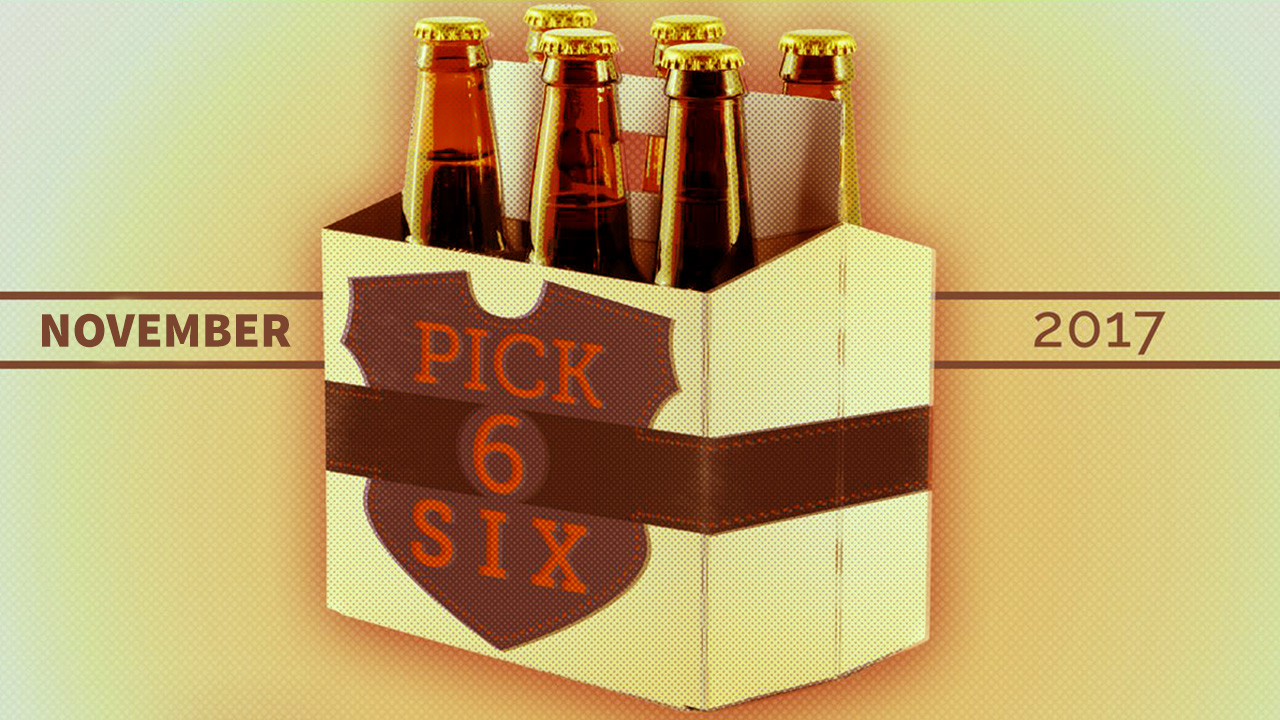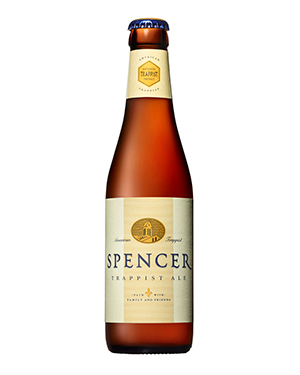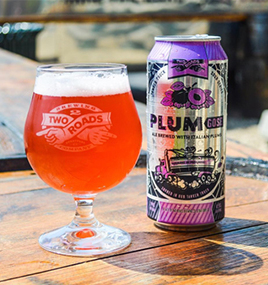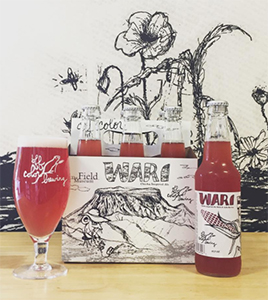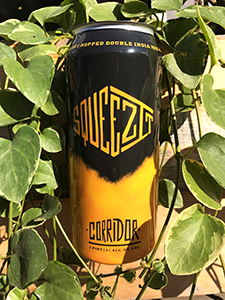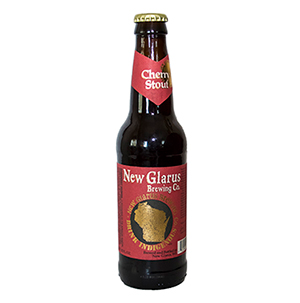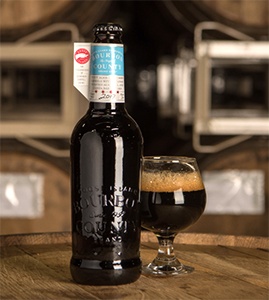Can Craft Brewers Change More Than Just The Beer Industry? (Plus 6 To Drink This Month)
A $213 billion crowdfunding campaign launched in October. No, James Cameron isn't using a "Zach Braff" financing model for his Avatar sequels. This fundraising is an attempt to buy Anheuser-Busch InBev to keep it from buying any more craft breweries.
The tongue-in-cheek "Take Craft Back" effort is a creation of the Brewers Association, the trade group that works to promote small independent breweries in the U.S. A few months ago, they created a seal to help consumers call out breweries that started as small, independent companies, but had sold their business to larger breweries (most often that larger brewery being A-B InBev, the largest beer maker in the world). Almost half the breweries in the U.S. have adopted this seal. The real goal, it seems, of the "Take Craft Back" campaign isn't a far-fetched hostile takeover of A-B InBev, but to get people talking about brewery ownership.
While consumers deserve far more transparency when it comes to who profits from the beer they're buying, I hope this ad campaign also gets people thinking about the very real potential of craft breweries to work as agents of change in their communities.
Around the same time the "Take Craft Back" campaign launched, Gainesville, Florida's Alligator Brewing nanobrewery experienced a brief moment in the national spotlight. White supremacist Richard Spencer was planning to kick off a speaking tour in Gainesville, so the folks at Alligator made an offer to trade tickets to his event for free beer. Their expressed purpose was to leave Spencer speaking to an empty auditorium. While their plan didn't end up crippling the event as intended, it did create a real connection between Alligator and its community.
Kate Bernot in Draft magazine recently profiled the efforts of Imagine Nation Brewing in Missoula, Montana; Central State Brewing in Indianapolis; and a few others that are also using their taprooms to elevate the dialogue beyond hop varietals and haze levels.
The potential for positive change through the efforts of the 5,000 craft breweries in the U.S. is immense. If it weren't, the premise of crowdfunding $213 billion would be too absurd to even joke about. The question is: Do brewery owners care enough to stand for something besides themselves?
On to this month's beer picks:
The Spencer Brewery (Spencer, MA) Spencer Trappist Ale
As England waits for its first Trappist brewery to open at Mount St. Bernard Abbey in the next few years, now is a good time to sample the only U.S. Trappist brewery. Spencer Brewery opened at St. Joseph's Abbey in Massachusetts three years ago. Its flagship Trappist Ale isn't a dubbel, tripel, or a quad like most monk beers. Instead, it's a patersbier, the style most European Trappists keep for their own consumption. I can see why monks would be drawn to this style. The grain flavors dominate, leaving you feeling like you just ate a slice of whole wheat bread straight out of the oven.
Two Roads Brewing Company (Stratford, CT) Plum Gose
Now that kettle sour beers are fairly common, breweries are trying new and novel ways to differentiate their product. This sample that Two Roads sent is unique in two ways: It's one of the few purée goses to add plum to the mix, and it was soured in an old dairy truck instead of the brewhouse. The tart flavor of the plum's skin is a near-identical match to a rather acidic gose, so the fruit selection works very well. As for the tanker truck, it doesn't matter much to me but kudos on the consistent branding, I guess.
Off Color Brewing (Chicago, IL) Wari Chicha De Molle
Reviving ancient beer styles is a core part of Off Color's identity. For the past few years, it's been collaborating with scholars from The Field Museum to attempt new brews. This beer was inspired by the ancient Peruvian corn-based drink chicha de molle, which adds pink peppercorns to the purple corn-based brew. Like most beers that originated before the discovery of yeast, Wari has a touch of sour flavor from a mixed fermentation or Lactobacillus addition. That's balanced, however, with the rich corn flavor and dry finish of the peppercorn berries. Mostly, though, this beer is excellent to look at, with a light purple body and pink foam head.
Corridor Brewery (Chicago, IL) Squeezit Double Dry Hopped IPA
Corridor is a brewpub just a few blocks from The Friendly Confines of Wrigley Field. It has been celebrating its second anniversary in October and released its first packaged product to mark the occasion. Back in April the previously farmhouse-focused facility made a pivot to hazy IPAs and Squeezit was the first beer it brewed. Now the luxuriously juicy, liquid ode to hops is available not just on draft or in growlers, but in sensible 16-ounce cans. So far Corridor has only made 400 cans, but I have no doubt more will be coming soon. When I stopped by to pick up a sample can two hours after they went on sale, the four packs were long gone. It turns out there's still reason to celebrate in Wrigleyville even with the Cubs done for the season.
New Glarus Brewing Company (New Glarus, WI) Cherry Stout
I feel bad writing about New Glarus beers at all since they're not available outside Wisconsin. I feel extra bad recommending a limited-release beer like this one from its Thumbprint series. But it would be unconscionable to not share what an outstanding and surprising beer this was. The name Cherry Stout had me expecting something like a Black Forest Cake-flavored dessert beer. Instead it was more like an oud bruin, a Belgian specialty that evokes fruit flavors through wood-aging and mixed fermentation. It turns out this beer is spontaneously fermented and aged in oak barrels, but Wisconsin cherries are added to really drive home that fruit flavor. This just confirms my faith in my rule of thumb: Anytime you can, buy every Thumbprint series beer available to you.
Goose Island Brewing Company (Chicago, IL/Leuven, Belgium) Bourbon County Brand Stout Proprietor’s
Remember how I said recommending limited beers from New Glarus makes me feel bad? Well, this makes me feel even worse. Not only is this a beer from Goose Island, the grandfather of the crafty beer movement thanks to its sale to A-B InBev in 2011, it's also its most limited variety of Bourbon County Brand Stout: the one only sold in Chicago. But after tasting all six varietals at a media preview a few weeks ago, I'm still thinking about how this "pastry stout" took inspiration from bananas Foster and made a very delicious and original beer. The brewers said they added banana, cinnamon, and almond pieces to this beer and all three come through—caramelized banana aroma, cinnamon-vanilla flavor, and sweet-with-a-touch-of-bitter aftertaste of roasted almonds. The whole thing comes together so nicely you would think it was common to put bananas in beer (it's not). So I couldn't not write about this beer, even after trying other more widely distributed barrel-aged stouts to find something better. The reason the Brewers Association has to go to such extreme efforts as the "Take Craft Back" campaign is that these crafty breweries can still make exceptional beer.
